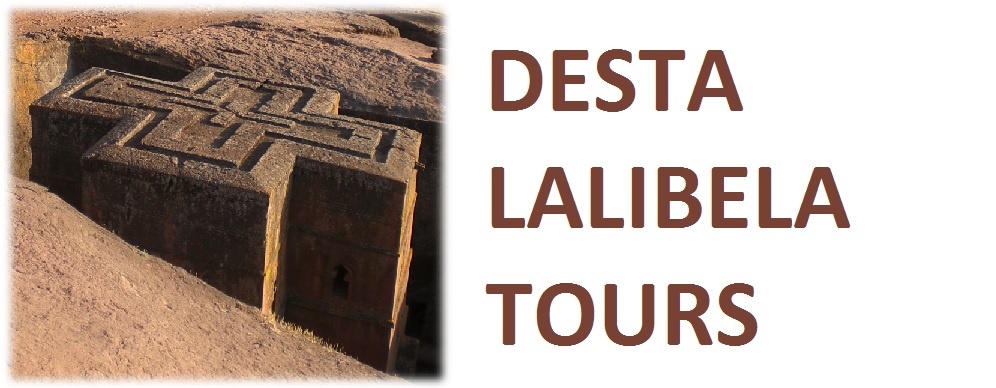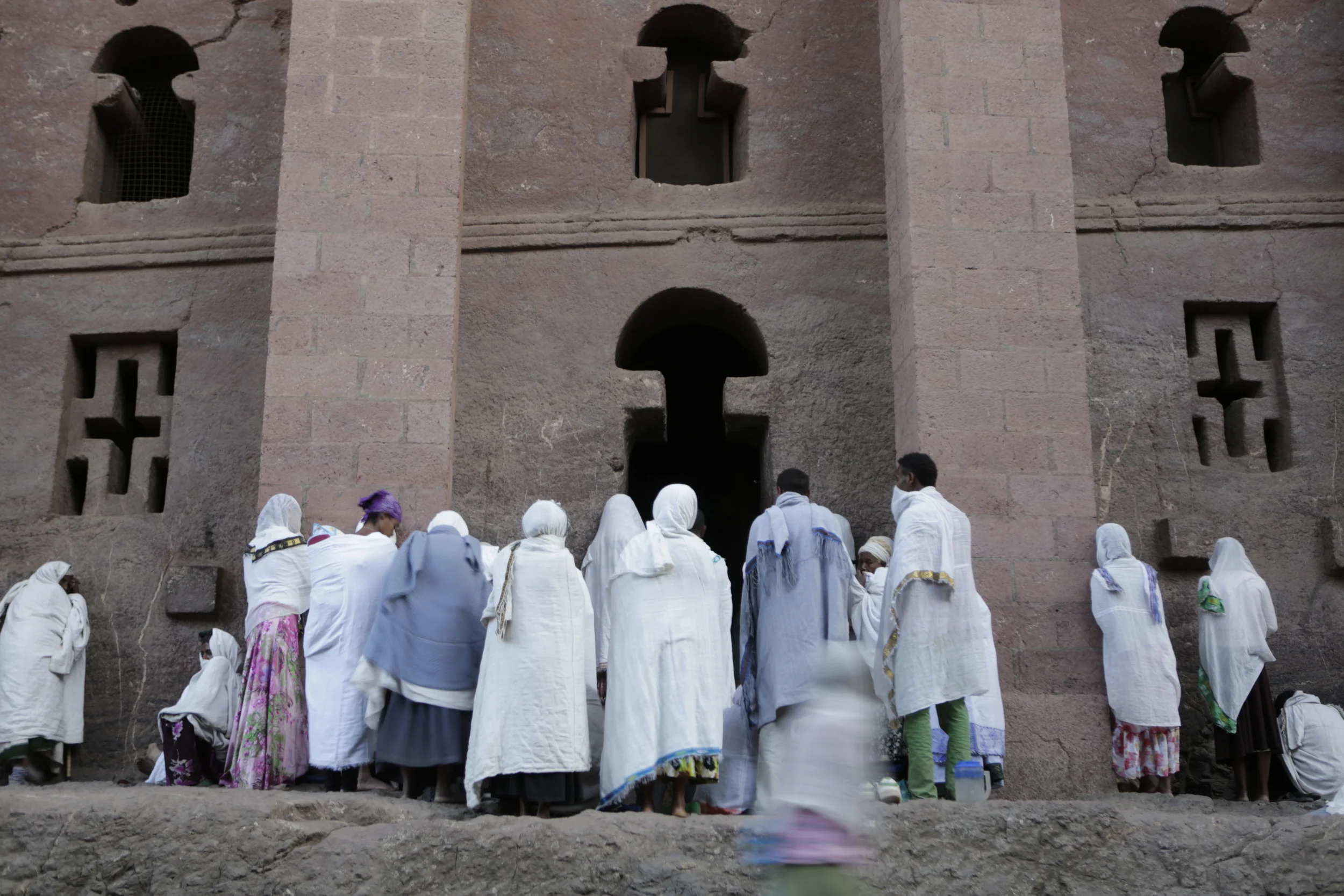1 - Timkat (Epiphany)
Timkat (Epiphany) is celebrated 12 days after Christmas, both according to the Julian calendar, which is now 13 days behind the Gregorian, so Christmas is celebrated in Ethiopia on January 7 (or 8, depending on leap years, as described below in "Ethiopian New Year"), and Epiphany on January 19 (or 20). Festivities take place the day before as well as the day after. The festival is celebrated throughout the Ethiopian highlands in Orthodox Christian strongholds, but nowhere is it quite as spectacular as in Lalibela, an isolated mountain town in the arid north of the country. It is a colourful three-day festival celebrating Epiphany and it is marked by the procession of the tabots (the replicas of the Ark of the Covenant, the original of which is said to be in the chapel at Axum) around the towns, draped in heavy embroidered materials. People bathe in the lakes and splash water over onlookers.
After the ceremony, the tabots are taken back to the churches in procession, accompanied by singing, drumming, the ringing of bells and blowing of trumpets. Festivities continue throughout the day and into the night. A more religious ceremony takes place the following day, dedicated to the Archangel Mikael, after which the priests are fed by their parishioners and young people continue to celebrate into the night. This is the most colorful event in the year when churches parade their Tabots to a nearby body of water.
2 - Enkutatash (Ethiopian New Year)
This is celebrated on the 11th of September (resp. on the 12th of September after an Ethiopian leap year, which currently occurs when the following Gregorian year is a leap year). Various Ethiopian peoples have their own new years and respective celebrations.
Enkutatash means the "gift of jewels". When the famous Queen of Sheba returned from her expensive jaunt to visit King Solomon in Jerusalem, her chiefs welcomed her bolts by replenishing her treasury with inku or jewels. The spring festival has been celebrated since these early times, and as the rains come to their abrupt end, dancing and singing can be heard at every village in the countryside.
3 - Maskal (foundation of true cross)
Maskal has been celebrated in the country for over 1600 years. It is celebrated in memory of the finding of the True Cross by Empress Eleni. This is as colorful as Timkat, however instead of water the focus of the celebration is a bonfire before topped with an image of a cross to which flowers are tied held on September 27th (or 28th). Priests in full ceremonial dress bless the bonfire before it is lit. This festival coincides with the mass blooming of the golden Maskal Daisies, called Adey Ababa in Amharic, symbolically heralding the advent of a new year after the rainy season is over.
Best places to be witness is Addis Ababa, and at the entire historical route.
4 - Genna (Christmas)
This event, falling on the 7th (or 8th) of January, is celebrated seriously by a church service that goes on throughout the night, with people moving from one church to another.
Christmas, called Lidet, is not the primary religious and secular festival that it has become in Western countries. Falling on January 7th (or 8th), it is celebrated after 43 days fasting known as Tsome Gahad (Advent) by a church service and spectacular procession that goes on throughout the night, with people moving from one church to another. Traditionally, young men played a game similar to hockey, called genna, on this day, and now Christmas has also come to be known by that name.Best place to witness this festival: Lalibela.
5 - Hidar Tsion in November
The Virgin Mary is one of the most venerated of all religious figures in Ethiopia. About 33 days are annually dedicated to different celebrations in the commemoration of Mary. “Hidar Tsion” is associated with the presence of the Ark of the Covenant in Axum and the belief that the Ark itself is a symbolism to her womb.
The festival is attended by tens of thousands of people from all over Ethiopia, making it one of the most joyous annual pilgrimages in Axum, the “sacred city of the Ethiopians”. The best place to witness this Festival is Axum.




